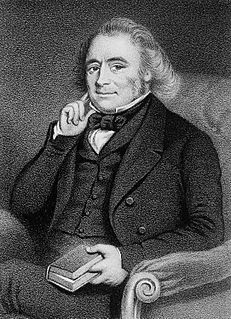A Quote by William Shakespeare
Thou mak'st me merry: I am full of pleasure; let us be jocund
Related Quotes
Thou O Spirit, that dost prefer Before all Temples th' upright heart and pure, Instruct me, for Thou know'st; Thou from the first Wast present, and with mighty wings outspread Dove-like satst brooding on the vast Abyss And mad'st it pregnant: What is in me dark Illumine, what is low raise and support; That to the heighth of this great Argument I may assert Eternal Providence, And justify the ways of God to men.
O Lord, Thou knowest that which is best for us; let this or that be done, as Thou shalt please. Give what Thou wilt, how much Thou wilt, and when Thou wilt. Deal with me as thou thinkest best. Place me where Thou wilt, and deal with me in all things just as Thou wilt. Behold, I am Thy servant, prepared for all things: I desire not to live unto myself, but unto Thee; and oh, that I could do it worthily and perfectly!
When thou cam'st first, Thou strok'st me and made much of me; wouldst give me Water with berries in't; and teach me how To name the bigger light, and how the less, That burn by day and night; and then I loved thee And showed thee all the qualities o' th' isle, The fresh springs, brine-pits, barren place and fertile.
Oh, thou did'st then ne'er love so heartily. If thou rememb'rest not the slightest folly That ever love did make thee run inot, Thou has not loved. Of if thou has't not sat as I do now, Wearying they hearer in thy mistress's praise, Thou has not loved. Of if thou hast not broke from company Abruptly, as my passion now makes me, Thou has not loved. (Silvius)

































